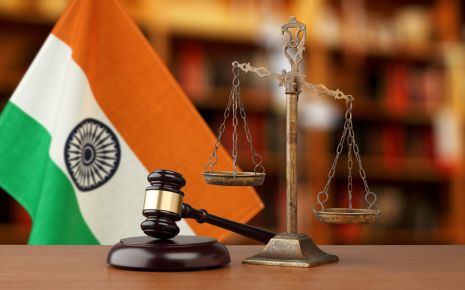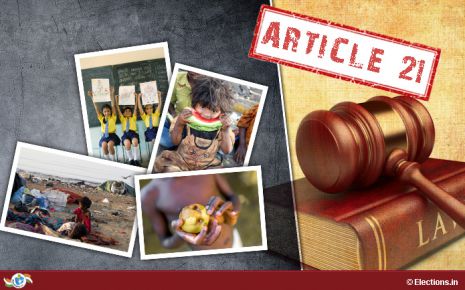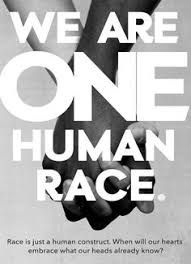Analyzing the Independence of the Judiciary of Saudi Arabia
Examining the independence of the judiciary in Saudi Arabia is a complicated
matter, encompassing various aspects. The kingdom has taken steps to revamp its
legal system in recent years, such as setting up specialized courts and
introducing new regulations. However, doubts persist about the actual autonomy
of the judiciary. This analysis aims to delve into various components of
judicial independence in Saudi Arabia, including its legal foundation,
institutional structure, practical challenges, and possible improvements.
Legal Framework:
Saudi Arabia adopts a hybrid legal system that harmonizes Islamic law (Sharia) with modern legislation and royal directives. The Quran and Sunnah serve as the foundational sources of legal authority, complemented by royal decrees and administrative regulations. The Basic Law of Governance, enacted in 1992, establishes the governance principles of Saudi Arabia.
Article 1 of the Basic Law explicitly recognizes the Quran and Sunnah as the country's constitution, underscoring the primacy of Islamic law. Article 46 further emphasizes judicial independence, stating that judges are autonomous and shall only adhere to the prescriptions of Sharia and applicable laws. This provision ensures the separation of powers.
Despite the provisions of the Basic Law, the separation of powers and judicial autonomy in practice are influenced by the executive branch's authority, particularly through royal decrees and the Ministry of Justice. Consequently, while the judiciary maintains nominal independence, its practical autonomy is subject to the wider political and administrative landscape of the kingdom.
Institutional Structure:
The Saudi judiciary operates on a multi-tiered system, encompassing general courts, specialized courts, and religious courts. General courts address a broad spectrum of civil, criminal, and commercial disputes. Specialized courts, such as labor courts and commercial courts, handle matters specific to their respective fields. Religious courts primarily adjudicate family law, personal status, and other issues governed by Islamic law.
The Supreme Judicial Council oversees the judiciary, holding the authority to appoint, promote, and discipline judges. While theoretically independent, the Council's leadership structure raises concerns about the judiciary's autonomy. The Council is chaired by the Minister of Justice and includes high-ranking officials appointed by the king, creating a direct link to the executive branch.
The Committee for the Promotion of Virtue and the Prevention of Vice (CPVPV), popularly known as the religious police, holds considerable power in enforcing social and religious norms within Saudi society. Despite recent efforts to reduce its influence, the CPVPV continues to impact social behavior, potentially influencing judicial decisions, particularly in cases related to moral or religious issues.
Practical Challenges:
The Saudi judicial system faces practical challenges that impede its effectiveness. A significant concern is the absence of a comprehensive legal framework that explicitly safeguards judicial independence from the executive branch and religious authorities. The potential for their influence on judicial decisions undermines the fairness and impartiality of the system.
To address these challenges, a multifaceted approach is warranted. Strengthening judicial autonomy through reforms that insulate it from external influences is paramount. Enhancing transparency in judicial processes and decision-making fosters public trust and ensures fair outcomes. Investing in legal education and promoting legal literacy empower citizens to navigate the legal system effectively. However, reforms should be mindful of Saudi Arabia's distinctive legal and cultural context, balancing traditional norms with universal principles of justice and the rule of law.
Challenges to Independence:
Despite legal protections for judicial independence, Saudi Arabia's judiciary grapples with systemic challenges that undermine its impartiality and effectiveness. These challenges stem from an intricate web of political, societal, and cultural influences, leading to concerns about the rule of law and the safeguarding of fundamental human rights within the kingdom.
Efforts for Reform:
Saudi Arabia's sweeping legal reforms seek to enhance judicial impartiality, competence, and accessibility. Notably, the establishment of specialized courts, improved judicial training, legislative modernization, and international collaborations form the core of these efforts. These initiatives aim to strengthen the judiciary and elevate the standard of justice within the kingdom.
Areas for Improvement:
The pursuit of true judicial independence in Saudi Arabia, marked by commendable efforts, faces persistent obstacles. Embracing a multifaceted approach is essential to achieve this vital goal. This entails confronting underlying challenges and nurturing a robust, impartial judiciary to ensure a fair and equitable justice system.
Saudi Arabia operates without a traditional, codified constitution like many other nations. Instead, its legal system is rooted in Islamic law (Sharia) and royal decrees. While a formalized separation of powers or explicit guarantees of judicial independence are absent, certain legal provisions and institutional structures do contribute to a degree of judicial autonomy.
One notable aspect is the Supreme Judicial Council, tasked with overseeing the appointment, promotion, and discipline of judges. This council, led by the king, seeks to provide a degree of institutional independence for the judiciary. Additionally, the Basic Law of Governance, though not a constitution in the strict sense, incorporates principles emphasizing justice and the rule of law, laying a foundation for judicial independence.
Recent legal reforms have introduced specialized courts and procedural improvements, enhancing the judiciary's efficiency and autonomy. These measures, though falling short of a comprehensive constitutional framework, demonstrate efforts to strengthen judicial independence within the context of Saudi Arabia's legal system. However, challenges remain, such as political influence and limited accountability, highlighting the need for further reforms to bolster judicial independence in the kingdom.
Financial Independence of the Judiciary:
The financial independence of the judiciary in Saudi Arabia is essential for maintaining its autonomy and impartiality. However, the current system raises concerns about the judiciary's financial autonomy and its potential impact on judicial independence.
Under the current arrangement, the judiciary's budget is allocated and managed by the Ministry of Finance, which falls under the executive branch of government. This arrangement may subject the judiciary to financial pressures and influence from the executive, potentially compromising its independence.
To strengthen the financial independence of the judiciary, separate budgetary mechanisms should be established to protect judicial funding from political interference. Independent bodies or commissions could oversee the judiciary's budget, ensuring adequate resources and minimizing undue influence from the executive branch. Transparent budgeting processes and reporting mechanisms would enhance accountability and public confidence in the judiciary's financial management, enabling it to uphold the rule of law and administer justice impartially.
Conclusion:
The judiciary in Saudi Arabia operates in a complex landscape influenced by legal, institutional, social, and political factors. Despite efforts to enhance judicial independence, challenges remain, including political influence, limited accountability, and social norms.
To strengthen the judiciary's autonomy, comprehensive reforms are crucial. These include legislative changes to ensure judicial independence, transparency measures to increase accountability, and investments in training and education for judges. Ultimately, an independent judiciary is essential for upholding the rule of law, protecting individual rights, and building public trust in the legal system.
Written By: Md.Imran Wahab, IPS, IGP, Provisioning, West Bengal
Email: [email protected], Ph no: 9836576565
Legal Framework:
Saudi Arabia adopts a hybrid legal system that harmonizes Islamic law (Sharia) with modern legislation and royal directives. The Quran and Sunnah serve as the foundational sources of legal authority, complemented by royal decrees and administrative regulations. The Basic Law of Governance, enacted in 1992, establishes the governance principles of Saudi Arabia.
Article 1 of the Basic Law explicitly recognizes the Quran and Sunnah as the country's constitution, underscoring the primacy of Islamic law. Article 46 further emphasizes judicial independence, stating that judges are autonomous and shall only adhere to the prescriptions of Sharia and applicable laws. This provision ensures the separation of powers.
Despite the provisions of the Basic Law, the separation of powers and judicial autonomy in practice are influenced by the executive branch's authority, particularly through royal decrees and the Ministry of Justice. Consequently, while the judiciary maintains nominal independence, its practical autonomy is subject to the wider political and administrative landscape of the kingdom.
Institutional Structure:
The Saudi judiciary operates on a multi-tiered system, encompassing general courts, specialized courts, and religious courts. General courts address a broad spectrum of civil, criminal, and commercial disputes. Specialized courts, such as labor courts and commercial courts, handle matters specific to their respective fields. Religious courts primarily adjudicate family law, personal status, and other issues governed by Islamic law.
The Supreme Judicial Council oversees the judiciary, holding the authority to appoint, promote, and discipline judges. While theoretically independent, the Council's leadership structure raises concerns about the judiciary's autonomy. The Council is chaired by the Minister of Justice and includes high-ranking officials appointed by the king, creating a direct link to the executive branch.
The Committee for the Promotion of Virtue and the Prevention of Vice (CPVPV), popularly known as the religious police, holds considerable power in enforcing social and religious norms within Saudi society. Despite recent efforts to reduce its influence, the CPVPV continues to impact social behavior, potentially influencing judicial decisions, particularly in cases related to moral or religious issues.
Practical Challenges:
The Saudi judicial system faces practical challenges that impede its effectiveness. A significant concern is the absence of a comprehensive legal framework that explicitly safeguards judicial independence from the executive branch and religious authorities. The potential for their influence on judicial decisions undermines the fairness and impartiality of the system.
To address these challenges, a multifaceted approach is warranted. Strengthening judicial autonomy through reforms that insulate it from external influences is paramount. Enhancing transparency in judicial processes and decision-making fosters public trust and ensures fair outcomes. Investing in legal education and promoting legal literacy empower citizens to navigate the legal system effectively. However, reforms should be mindful of Saudi Arabia's distinctive legal and cultural context, balancing traditional norms with universal principles of justice and the rule of law.
Challenges to Independence:
Despite legal protections for judicial independence, Saudi Arabia's judiciary grapples with systemic challenges that undermine its impartiality and effectiveness. These challenges stem from an intricate web of political, societal, and cultural influences, leading to concerns about the rule of law and the safeguarding of fundamental human rights within the kingdom.
- Political Influence: The close relationship between the judiciary and the ruling monarchy in Saudi Arabia undermines judicial independence, raising concerns about impartiality, especially in cases involving political dissent or human rights violations. Critics contend that judges may succumb to pressure to prioritize government interests over the rule of law, potentially resulting in biased decisions that erode public trust in the justice system.
- Limited Accountability: The absence of transparent mechanisms governing judicial appointments, promotions, and disciplinary actions further erodes judicial independence. Without clear standards and oversight, favoritism, nepotism, and corruption can permeate the judiciary, undermining accountability and creating a breeding ground for manipulation. This lack of transparency irreparably damages public trust in the legal system, undermining its ability to impartially adjudicate disputes and protect the rights of individuals.
- Social and Cultural Factors: In Saudi Arabia, the judiciary's operation is deeply intertwined with social and cultural factors, with traditional customs and religious interpretations heavily influencing judicial decisions, particularly in areas like family law and morality. According to some Western thinkers, this might result in unequal legal treatment, especially for marginalized groups like women and religious minorities, who may face discriminatory judgments based on societal norms rather than purely legal principles.
- Security Concerns: Due to the government's emphasis on national security and counterterrorism, due process rights and fair trial guarantees have been curtailed, undermining judicial independence. These restrictions result in arbitrary detentions, denied access to legal representation, and biased trials, eroding the integrity of a fair and impartial justice system.
- International Criticism: International criticism of Saudi Arabia's human rights record, particularly regarding judicial independence and fair trials, complicates the country's efforts to address the challenges facing its judiciary. While external pressure may prompt the government to reassess its approach to judicial reform, the extent to which it will result in substantial changes that tackle the fundamental issues remains uncertain.
Efforts for Reform:
Saudi Arabia's sweeping legal reforms seek to enhance judicial impartiality, competence, and accessibility. Notably, the establishment of specialized courts, improved judicial training, legislative modernization, and international collaborations form the core of these efforts. These initiatives aim to strengthen the judiciary and elevate the standard of justice within the kingdom.
-
Establishment of Specialized Courts: With a view to augmenting judicial efficiency, Saudi Arabia has instituted specialized courts dedicated to adjudicating distinct categories of cases. These include courts handling commercial disputes, labor-related grievances, and terrorism-related offenses. The establishment of these courts aims to enhance the precision and cohesion of judicial pronouncements, ensuring a more streamlined and effective judicial system.
-
Training and Professional Development: To advance judicial prowess, the kingdom has initiated comprehensive training and professional development programs. Collaborations with international legal organizations bolster judicial expertise, while tailored education programs nurture aspiring judges. These initiatives aim to enhance legal acumen and ensure judges are equipped to effectively navigate the complexities of their profession.
-
Legal Reforms: Saudi Arabia has embarked on a modernization of its judicial system through a series of legal reforms. These reforms aim to streamline court procedures, strengthen individual rights, and expand legal protections for defendants. Notably, updates to the criminal code have introduced robust appellate mechanisms, ensuring fair trials and upholding the rule of law.
- International Engagement: Saudi Arabia has embarked on a comprehensive modernization of its judicial system, enacting a series of legal reforms aimed at simplifying court procedures, bolstering individual rights, and expanding legal protections for defendants. These reforms, particularly updates to the criminal code, have introduced robust appellate mechanisms to ensure fair trials and uphold the rule of law, marking a significant step towards a more modern and equitable legal framework.
Areas for Improvement:
The pursuit of true judicial independence in Saudi Arabia, marked by commendable efforts, faces persistent obstacles. Embracing a multifaceted approach is essential to achieve this vital goal. This entails confronting underlying challenges and nurturing a robust, impartial judiciary to ensure a fair and equitable justice system.
- Legislative Reforms: Strengthening judicial independence hinges on legislative reform, which necessitates enacting clear laws and regulations defining judicial independence standards, appointment procedures, and disciplinary mechanisms. Such legislation would clarify the judiciary's role and responsibilities, creating a robust framework for its operation and ensuring its autonomy.
- Transparency and Accountability: Fortifying judicial independence hinges on transparency and accountability, achieved through transparent processes for judicial appointments, promotions, and disciplinary actions, coupled with independent oversight bodies. These measures serve to bolster public trust in the judiciary and ensure accountability for judicial decisions and conduct.
- Training and Education: Investing in judicial training and professional development programs is another crucial element. Exposure to international legal standards and best practices can significantly elevate the quality and consistency of judicial decision-making. This investment would not only enhance the competence of individual judges but also contribute to a more unified and equitable judicial system.
- Legal Empowerment: Legal empowerment is a vital component of achieving true judicial independence. This includes strengthening legal aid services, promoting public legal awareness, and ensuring access to justice for all segments of society. By empowering individuals to exercise their legal rights, we create a system where citizens can hold the judiciary accountable.
- Civil Society Engagement: Engaging civil society organizations, legal professionals, and human rights activists in the pursuit of judicial independence is essential. Their active monitoring and advocacy can raise awareness of key issues and push for meaningful reforms. By fostering a collaborative environment, we create a shared responsibility for achieving a truly independent and accountable judiciary in Saudi Arabia.
Saudi Arabia operates without a traditional, codified constitution like many other nations. Instead, its legal system is rooted in Islamic law (Sharia) and royal decrees. While a formalized separation of powers or explicit guarantees of judicial independence are absent, certain legal provisions and institutional structures do contribute to a degree of judicial autonomy.
One notable aspect is the Supreme Judicial Council, tasked with overseeing the appointment, promotion, and discipline of judges. This council, led by the king, seeks to provide a degree of institutional independence for the judiciary. Additionally, the Basic Law of Governance, though not a constitution in the strict sense, incorporates principles emphasizing justice and the rule of law, laying a foundation for judicial independence.
Recent legal reforms have introduced specialized courts and procedural improvements, enhancing the judiciary's efficiency and autonomy. These measures, though falling short of a comprehensive constitutional framework, demonstrate efforts to strengthen judicial independence within the context of Saudi Arabia's legal system. However, challenges remain, such as political influence and limited accountability, highlighting the need for further reforms to bolster judicial independence in the kingdom.
Financial Independence of the Judiciary:
The financial independence of the judiciary in Saudi Arabia is essential for maintaining its autonomy and impartiality. However, the current system raises concerns about the judiciary's financial autonomy and its potential impact on judicial independence.
Under the current arrangement, the judiciary's budget is allocated and managed by the Ministry of Finance, which falls under the executive branch of government. This arrangement may subject the judiciary to financial pressures and influence from the executive, potentially compromising its independence.
To strengthen the financial independence of the judiciary, separate budgetary mechanisms should be established to protect judicial funding from political interference. Independent bodies or commissions could oversee the judiciary's budget, ensuring adequate resources and minimizing undue influence from the executive branch. Transparent budgeting processes and reporting mechanisms would enhance accountability and public confidence in the judiciary's financial management, enabling it to uphold the rule of law and administer justice impartially.
Conclusion:
The judiciary in Saudi Arabia operates in a complex landscape influenced by legal, institutional, social, and political factors. Despite efforts to enhance judicial independence, challenges remain, including political influence, limited accountability, and social norms.
To strengthen the judiciary's autonomy, comprehensive reforms are crucial. These include legislative changes to ensure judicial independence, transparency measures to increase accountability, and investments in training and education for judges. Ultimately, an independent judiciary is essential for upholding the rule of law, protecting individual rights, and building public trust in the legal system.
Written By: Md.Imran Wahab, IPS, IGP, Provisioning, West Bengal
Email: [email protected], Ph no: 9836576565
Law Article in India
Legal Question & Answers
Lawyers in India - Search By City
LawArticles
How To File For Mutual Divorce In Delhi

How To File For Mutual Divorce In Delhi Mutual Consent Divorce is the Simplest Way to Obtain a D...
Increased Age For Girls Marriage

It is hoped that the Prohibition of Child Marriage (Amendment) Bill, 2021, which intends to inc...
Facade of Social Media

One may very easily get absorbed in the lives of others as one scrolls through a Facebook news ...
Section 482 CrPc - Quashing Of FIR: Guid...

The Inherent power under Section 482 in The Code Of Criminal Procedure, 1973 (37th Chapter of t...
The Uniform Civil Code (UCC) in India: A...

The Uniform Civil Code (UCC) is a concept that proposes the unification of personal laws across...
Role Of Artificial Intelligence In Legal...

Artificial intelligence (AI) is revolutionizing various sectors of the economy, and the legal i...








Please Drop Your Comments